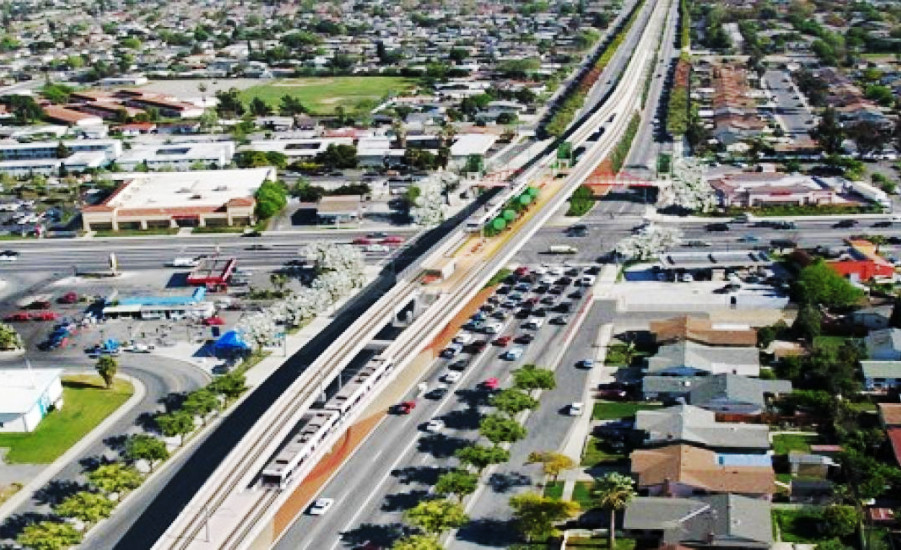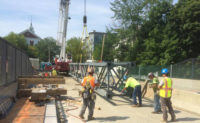The Santa Clara Valley Transportation Authority has approved construction of the $653-million Eastridge to BART Regional Connector Project in San Jose, Calif. A joint venture of Sacramento-based MCM Construction and New York City-based RailWorks Corp. was selected on March 7 to build the project, with a winning bid of $437.1 million.
The bid was the lowest but it still was about $120 million above the project estimate, according to the authority.
The 2.4-mile connector, formerly known as the Capitol Expressway Light Rail Project, extends light rail from the existing Alum Rock light rail station to the Eastridge Transit Center, with an elevated guideway primarily in the center of the Capitol Expressway. The extension will include an elevated light rail station that is accessed by a pedestrian overcrossing and an at-grade station at the Eastridge Transit Center.
When the design-bid-build project is complete, riders will board light rail at the Eastridge center and connect directly with BART at the Milpitas station.
There were two other bidders for the job: DMZ Builders at $460.7 million and Flatiron West Inc.at $494.2 milion. MCM-Railworks was selected as the “lowest responsible and responsive bidder,” says Ken Ronsse, authority project manager and deputy director of transit engineering for rail and facilities.
Ronsse says the joint ventures's bid above the estimate is mainly because there are more than 500 bid items included in the construction contract.
“As has been experienced by large construction contracts throughout the country, there remains volatility in construction bids given the need for contractors to commit to labor, material and equipment cost over several years, or the duration of construction,” he says. “For many items, the escalation trend for material and labor costs are constant. However, for some items, such as concrete and electrical, the construction industry remains to be impacted by supply chain limitations and inflation rate fluctuations. These fluctuations resulted in the difference between the VTA estimate and the bids.”
Even so, MCM-Railworks managed to trim the project timeline significantly, Ronsse says, with schedule duration part of the bid process.
The authority allowed no more than 1,600 days to complete construction. “MCM-Railworks committed to finish the work in 1,250 days, meaning that it can be built 350 days sooner than [the agency] would have allowed in the bid,” he says. “The contractor is able to shorten duration given its experience with large bridge projects and the efficiency that they bring to the work.”
The Eastridge to BART Regional Connector Project is the final phase of the larger Capitol Expressway Transit Improvement Project that transforms the highway into a multi-modal expressway, offering bus rapid transit, light rail transit and safe connections to the regional transit system.
Phase 1 of the project, completed in 2012, improved safety measures along the expressway and included new sidewalks, street lighting and a landscaping buffer. It also included transit center reconstruction, completed in 2015.
The project is currently in final design, with th authortty ecuring right-of-way along the corridor to relocate underground utilities and PG&E towers along the expressway.
Once the utilities have been relocated this summer, construction of the light rail extension can begin. It is expected to last through 2028, with revenue service expected in 2029.




